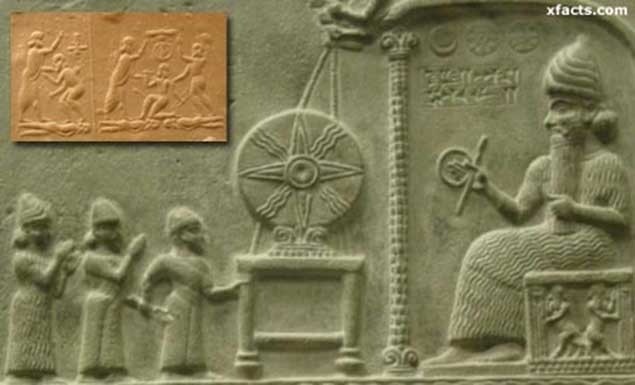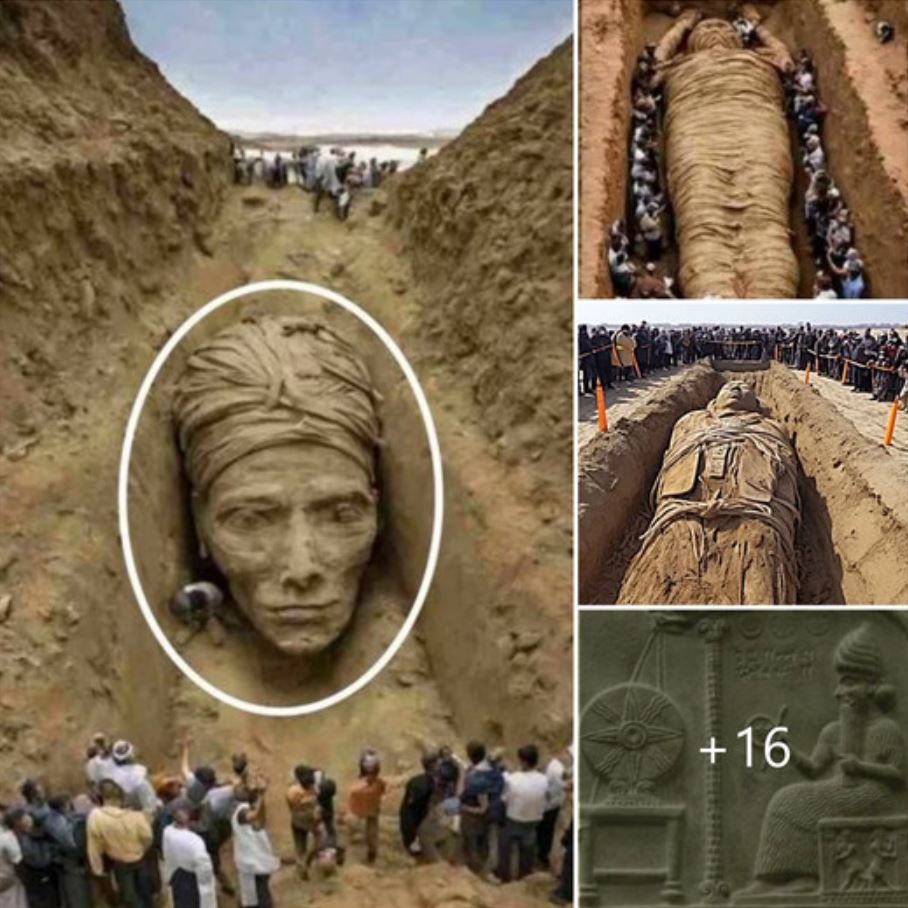The ancient Sumerian civilization, often regarded as the cradle of human civilization, has left behind a wealth of myths and legends that continue to captivate modern scholars and enthusiasts. Among these tales, one figure stands out with particular intrigue: Gilgamesh. Traditionally considered a demigod and hero, some contemporary theories suggest that Gilgamesh might have been an extraterrestrial being. This provocative hypothesis invites us to reexamine ancient texts and artifacts through a new lens, blending mythology with the possibility of ancient alien encounters.
The Epic of Gilgamesh

The Epic of Gilgamesh, one of the oldest known pieces of literature, dates back to around 2100 BCE. It tells the story of Gilgamesh, the king of Uruk, who is two-thirds divine and one-third human. His extraordinary feats, including battling mythical creatures and seeking the secret of eternal life, paint him as a figure of immense power and wisdom. These superhuman traits have led some to speculate that Gilgamesh was more than just a legendary hero.
Extraterrestrial Hypotheses
Proponents of the ancient astronaut theory suggest that many ancient myths and deities were, in fact, based on real encounters with advanced extraterrestrial beings. In this context, Gilgamesh’s remarkable abilities and semi-divine nature might be interpreted as evidence of his extraterrestrial origin. The descriptions of his physical appearance, his longevity, and his advanced knowledge all hint at the possibility of an otherworldly connection.
Analyzing Ancient Texts
The Sumerian texts provide several clues that fuel this hypothesis. For instance, Gilgamesh is often depicted as possessing knowledge and technology far beyond that of his contemporaries. The detailed accounts of his construction projects, including the massive walls of Uruk, suggest an understanding of engineering and architecture that some argue could have been imparted by extraterrestrial visitors.

The Search for Immortality
One of the central themes of the Epic of Gilgamesh is his quest for immortality. After the death of his friend Enkidu, Gilgamesh embarks on a journey to discover the secret of eternal life. He encounters Utnapishtim, who survived a great flood and was granted immortality by the gods. This narrative has striking parallels with other flood myths and stories of divine beings bestowing longevity, further supporting the theory that Gilgamesh’s story might have extraterrestrial origins.
Artifacts and Symbols
Archaeological findings also contribute to this theory. Various Sumerian artifacts depict Gilgamesh in ways that suggest a connection to the stars. For example, some cylinder seals show him alongside celestial symbols, which could be interpreted as indicating his extraterrestrial heritage. Additionally, the advanced craftsmanship of these artifacts suggests a level of skill and knowledge that some believe was influenced by otherworldly beings.
Global Parallels

Gilgamesh is not the only figure in ancient mythology that is hypothesized to have extraterrestrial origins. Similar stories can be found in other cultures, such as the Egyptian gods, the Greek Titans, and the Mayan deities. These parallels suggest that ancient civilizations worldwide might have had contact with advanced beings, who were later deified and immortalized in myth.
Modern Interpretations
The idea that Gilgamesh was an extraterrestrial being is still a fringe theory, but it has gained traction in popular culture and among certain scholarly circles. Shows like “Ancient Aliens” have brought this hypothesis to a broader audience, encouraging a reexamination of ancient texts and artifacts. While mainstream academia remains skeptical, the discussion opens up new possibilities for interpreting human history and mythology.
Unveiling the mystery of Gilgamesh as an extraterrestrial god of Sumerian legend challenges our conventional understanding of history and mythology. While the theory remains speculative, it invites us to explore the intersection of ancient myths and possible extraterrestrial influences. As we continue to study and interpret the rich tapestry of Sumerian civilization, the figure of Gilgamesh stands as a testament to the enduring fascination with our origins and the potential for otherworldly connections.

